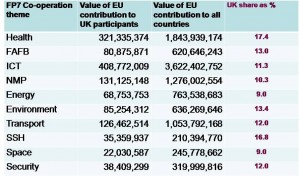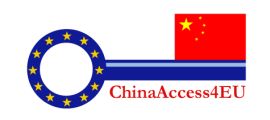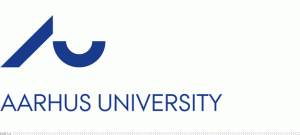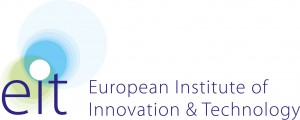 Recent research conducted by a team in the School of Applied Sciences (ApSci) has highlighted the need for a collaborative, interdisciplinary approach to environmental management and policy development. It is a project which is well placed in BU’s movement towards research focused on societal themes and aims to establish how stakeholder values of their local environment can be used to improve the effectiveness of ecosystem management creating stronger links between citizens and policy makers.
Recent research conducted by a team in the School of Applied Sciences (ApSci) has highlighted the need for a collaborative, interdisciplinary approach to environmental management and policy development. It is a project which is well placed in BU’s movement towards research focused on societal themes and aims to establish how stakeholder values of their local environment can be used to improve the effectiveness of ecosystem management creating stronger links between citizens and policy makers.
This European collaboration is nearing completion. The Transactional Environmental Support System Project (TESS), supported by the 7th Framework Programme of the European Commission was coordinated by Aristotle University of Thessaloniki (www.tess-project.eu) and involved several ApSci staff. The rationale for this project had its foundations in the move towards citizen-driven environmental governance and policy development. The aim of TESS was to provide a platform through which biodiversity information collected at a local level can be incorporated into policy development and land-use management. Could a system of this type encourage local communities to have more involvement in collection of these important data, and a greater role in the maintenance and restoration of their local environment and ecosystem services?
The project involved partnership with 14 other institutions from 10 different European countries. The project identified what information is required by both local land users and policy makers in order to develop effective environmental policy which will benefit both biodiversity and economic development. The results were tested through 11 local case studies which were then used to further develop the TESS portal (due to go online in the next month or so). BU’s involvement with the project has allowed us to develop strong, collaborative relationships with a number of institutions across Europe, linking strongly with the University’s desire to become more active on the European stage.
During the project, the ApSci team, including Prof. Adrian Newton, Dr. Kathy Hodder, Lorretta Perrella, Jennifer Birch, Elena Cantarello, Sarah Douglas, James Robins and Chris Moody, carried out a local case study within Dorset’s Frome Catchment Area. This case study site falls within the Dorset AONB and includes a SSSI, Local Nature Reserves, National Nature Reserves and Special Areas of Conservation. We were able to incorporate local knowledge and opinion into a novel evaluation of the ecosystem services and biodiversity benefits that might be realised through implementation of SW Biodiversity Implementation Plan. Such strategies have the implicit assumption that working on a landscape-scale to develop ‘ecological networks’ should have potential to facilitate adaption to climate change, increase ecological ‘resilience’ and improve the UK’s ability to conform to international policy commitments, such as the Habitat Directive. However, it is accepted that the cost of the ecological restoration required for such initiatives could be substantial and little work has been conducted on cost-benefit analysis of restoration initiatives. The work carried out by BU for the TESS project addressed the knowledge gap surrounding the cost effectiveness of ecological restoration approaches to climate change adaptation.
We currently have a paper in review with the Journal of Applied Ecology based on this work. It shows that spatial Multi Criteria Analysis could be used to identify important ecological restoration zones based on a range of criteria, including those relating to ecosystem services, biodiversity and incorporating the values of a range of stakeholders. This tool could be of direct value to the development of ecological networks in the UK as a climate change adaptation measure. Such tools developed through TESS may enable future plans for ecological restoration to incorporate local stakeholder values, improving the chances of societal benefits and long-term success of the schemes.
The wider results of the TESS project were presented at a conference in May 2011, hosted by the European Parliament Intergroup at the European Parliament in Brussels. BU was represented at the conference by one of our postdoctoral researches, Emma McKinley.


 The FP7 Security Call will be published on 20 July 2011 and new features to be included in the 2012 Work Programme are:
The FP7 Security Call will be published on 20 July 2011 and new features to be included in the 2012 Work Programme are:





























 New weight change BU paper
New weight change BU paper One week to go! | The 16th Annual Postgraduate Research Conference
One week to go! | The 16th Annual Postgraduate Research Conference Geography and Environmental Studies academics – would you like to get more involved in preparing our next REF submission?
Geography and Environmental Studies academics – would you like to get more involved in preparing our next REF submission? Congratulations to three former BU staff
Congratulations to three former BU staff MSCA Staff Exchanges 2024 Call – internal deadline
MSCA Staff Exchanges 2024 Call – internal deadline Applications are now open for 2025 ESRC Postdoctoral Fellowships!
Applications are now open for 2025 ESRC Postdoctoral Fellowships! Horizon Europe – ERC CoG and MSCA SE webinars
Horizon Europe – ERC CoG and MSCA SE webinars MaGMap: Mass Grave Mapping
MaGMap: Mass Grave Mapping ERC grants – series of webinars
ERC grants – series of webinars